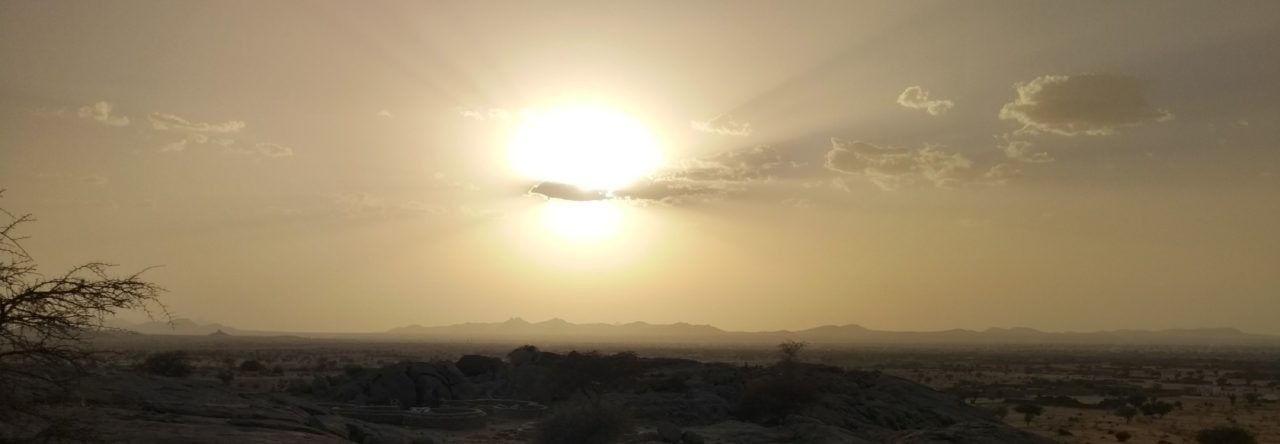Water in Chad is a concern that is never far from anyone’s mind. In large cities like the capital, N’Djamena, the concern is not as acute, but even there it is present. Outside of the capital, water is a constant concern. Here in Abeche, Chad’s second largest city, most of the city is without the “on-demand” water supply as we’ve grown accustomed to in the developed world. Even the relatively small percentage of the city that is connected to the city water supply only has water every couple of days at the most. When searching for a house to rent, if the landlord says there is water “2 days on, 2 days off” then you know you’ve found a great location! Often the water that comes only comes in the middle of the night, when demand is lower, and it comes in a trickle. Chadians often wake up in the night to fill water barrels and clay jars, otherwise they will be forced to pay a higher price to have young men bring them water by push cart from a more reliable source.
In the village, the situation is even more troublesome. Some villages have deep wells that have been drilled by Western NGOs, but often when the pumps break there is no one around to repair them. Villages without working wells must go to nearby seasonal riverbeds and dig down until they find water. This maybe be several meters, and once they find water they scoop it with bowls into containers or metal barrels to bring back to the village. The makeshift “wells” are often shared with animals, so the water can very easily be contaminated.

Recently a colleague of ours got funding for a project to replace 5 broken foot pumps at existing well sites with automatic solar powered pumps. The solar pumps automatically pump water during daylight hours into a tank that is plumbed with two spigots where people can come and get water. This water is drawn from deep in the well, typically 40-80 meters deep, and is much cleaner and better tasting than the water from the shallow holes in the riverbeds. Two of the foot pumps our friend replaced were in villages where we have relationships, and one of them was the village where we’ve built several huts. So for those two villages I went along to do the installation and helped out however I could. Check out some pictures below of the installations and the final outcome – clean water at the turn of a spigot!









